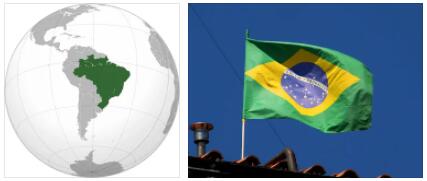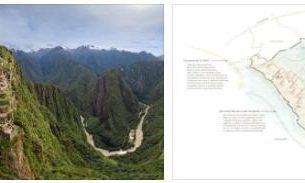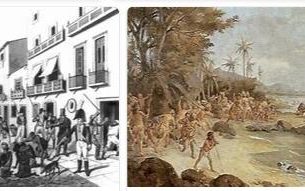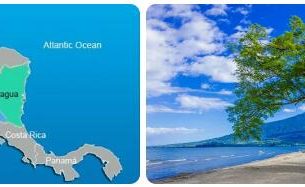Shopping
Overview
Shops and markets in Rio and São Paulo stay open late into the evening. Numerous shops in Rio and Bahia offer antiques and jewelry. Precious stones (especially emeralds), jewelry (especially silver), souvenirs, antiques for sale and leather goods are all for sale. Clothing, antiques, crystal and ceramics can be bought in São Paulo. Be warned of the »jungle souvenirs«, which are mainly offered in Belém – the purchase supports the systematic plundering of the rainforest. Shop opening hours: Mon-Fri 09.00-19.00, Sat 09.00-13.00. Shopping malls: Mon-Sat 10am-6pm, Sun 1pm-6pm. opening hours vary.
Nightlife
Introduction
The most varied offer is in Rio and São Paulo. In the larger nightclubs in Rio, shows don’t start until after midnight; numerous small nightclubs (boites) offer programs every evening. São Paulo’s nightspots are generally smarter and there’s more to choose from. Many shows start earlier than in Rio.
- Topmbadirectory: Offers information about politics, geography, and known people in Brazil.
Culinary
Overview
Brazilian cuisine with its numerous regional variations is unique. Bahia cuisine dates back to the days of slavery. Kitchen leftovers and anything you could catch were made with coconut milk and palm oil. Particular specialties include vatapá (crab, fish oil, coconut milk, bread and rice), sarapatel (liver, heart, tomato, peppers, onion and gravy) and caruru (crab, okra, onion and peppers). Rio Grande do Sul specialties include churrasco (beef grilled with a tomato and onion sauce) and galleto al primo canto (chicken skewers in white wine and oil). Pato no Tucupi (duck in an aromatic wild herb sauce) and Tacacá (thick yellow soup with shrimp and garlic) come from the Amazon region. In the Northeast, many dishes are prepared with dried salted meat and beans. Particularly popular in Rio is feijoada (black bean, beef and pork stew, sausage, chops, pork ears and tails with rice, boiled vegetables and orange slices). Traditionally, it is only prepared for lunch on Saturdays. However, a feijoada restaurant in São Paulo offers the dish daily. Beverages: Numerous spirits are produced and offered in the country. Freshly squeezed fruit juices are everywhere. Vitaminas are thick fruit or vegetable juices mixed with milk. Coffee is usually served with milk and sugar. The beer is excellent. Draft beer is called chopp. Cachaça, pitu or aguardente taste similar to whiskey and are enjoyed by locals (fewer visitors). Brazil’s national drink is caipirinha (mashed lime, brown sugar, cachaça, and crushed ice). There are variations with vodka instead of cachaça called caipirosca and the same with white rum called caipirissima. In bars you sometimes order at the table, sometimes at the counter. There are variations with vodka instead of cachaça called caipirosca and the same with white rum called caipirissima. In bars you sometimes order at the table, sometimes at the counter. There are variations with vodka instead of cachaça called caipirosca and the same with white rum called caipirissima. In bars you sometimes order at the table, sometimes at the counter.
Accommodation
Hotels
The standard of the hotels varies from region to region. The best hotels are essentially limited to the southern cities. For more information: Associacão Brasileira da Industria de Hoteis, sala 213, Avenida das Americas, Bl.1, BR-Rio de Janeiro. (Tel: (021) 33 28 75 45 or 34 10 51 31. Internet: www.abih.com.br). Rio de Janeiro/Sao Paulo: hotels in all price ranges. During Carnival time (February/March each year) hotels in Rio need to be booked well in advance.Brasília: Seat of government and administration. There are few good hotels. Most visitors fly here from Rio or Sao Paulo for a day trip or overnight stay. Salvador: Small number of good hotels, a few expensive hotels, Pensions also available as well as youth hostels and family accommodation. All accommodation options are fully booked early during the carnival period.Amazon Basin: Part of this region is being developed into a tourist area. Categories: The star system applies to almost all hotels. However, the classification does not correspond to American or European levels. Luxury hotels have 5 stars. 3-star hotels are inexpensive and home-style, 1-star hotels offer the bare essentials. Part of this region is being developed into a tourist area. Categories: The star system applies to almost all hotels. However, the classification does not correspond to American or European levels. Luxury hotels have 5 stars. 3-star hotels are inexpensive and home-style, 1-star hotels offer the bare essentials. Part of this region is being developed into a tourist area. Categories: The star system applies to almost all hotels. However, the classification does not correspond to American or European levels. Luxury hotels have 5 stars. 3-star hotels are inexpensive and home-style, 1-star hotels offer the bare essentials.
Camping
Organized safaris and camping tours in the Amazon are offered. However, since many areas of Brazil are largely unexplored, you should definitely stick to paved roads. It is best to camp in organized groups with official permits or to stay in hotels. The Camping Clube do Brasil (Camping Association) has 52 campsites in 14 states. The Guia Camping, available in most bookstores and kiosks in Brazil, contains all the necessary information. More information from Camping Clube do Brasil, Divisao de Campings, Rua Senador Dantas 75, 29 Andar, BR-20000 Rio de Janeiro. (Tel: (021) 210 31 71. Web: www.macamp.com.br/CCB.htm.
Other accommodation options
There are over 90 youth hostels. A list is available from Federaçao Brasileira dos Albergues da Juventude, Rua General Dionisio 63, BR-Rio de Janeiro. (Tel: (021) 286 03 03. (Internet: www.hostel.org.br)) A government initiative has seen the emergence of so-called eco-hotels in and around the Amazon rainforest, which tend to be quite expensive Luxury comfort and offer discovery tours in the rainforest.The so-called Dormitórios offer inexpensive accommodation in shared rooms with shared bathrooms.Overnight stays in pousadas (small guesthouses) are also inexpensive, but more expensive than in Dormitórios.Rooms with private bathrooms are usually called apartamentos, Rooms with shared bathrooms as Quartos.Motels are common, well maintained, reasonably priced and ideal for overnight stays. However, Brazilian couples like to use the motels as a love nest, especially on weekends. Because young people in Brazil usually live with their parents until they get married, couples can only be there by themselves.
Culture
Religion
Predominantly Roman Catholic; approx. 16% Protestants, other Christian communities, minorities of Buddhists, Bahai, Muslims and Jews; Native religions and Afro-Brazilian cults.
Social Rules of Conduct
They shake hands to greet each other. Brazilians are very hospitable and often offer tea or coffee or even a whole meal. A Brazilian takes his time and doesn’t rush things. Accordingly, you have to bring a lot of time with you, eg in banks, snack bars, luggage storage, etc. A bouquet of flowers is gladly accepted. Souvenirs from the visitor’s home country are also popular. Casual attire is acceptable during the day, but dress up a bit more elegantly in the evening. Written invitations to social events generally include wardrobe references. Smoking is permitted almost everywhere. The majority of the population is Roman Catholic and very religious, visitors should respect this. Beware of pickpockets in big cities. Tipping: 10-15% is reasonable. Sometimes the service charge is already included in the bill.
Climate
Best travel time
Dry bushland in the interior, rainforest on the Amazon and beaches on the east coast ensure that the climate varies greatly from region to region. In the south, temperatures are more moderate or subtropical in the north, they are tropical. Rainy season in the north from January – April, in the northeast from April – July and in the Rio/São Paulo area from November – March. Despite the rainy season, the best time to travel is in the Brazilian spring and winter from April to October.
Country data
Phone prefix
+55
Area (sq km)
8515770
Population
212,559,417 (Source: homosociety)
Population density (per square km)
24
Population statistics year
2020
Main emergency number
192



